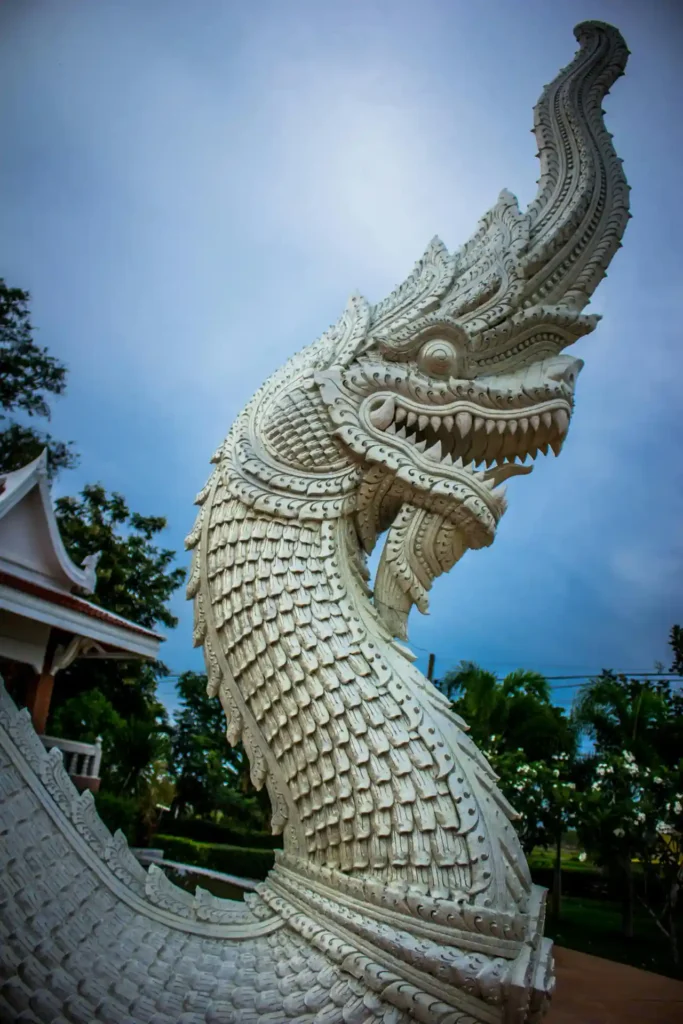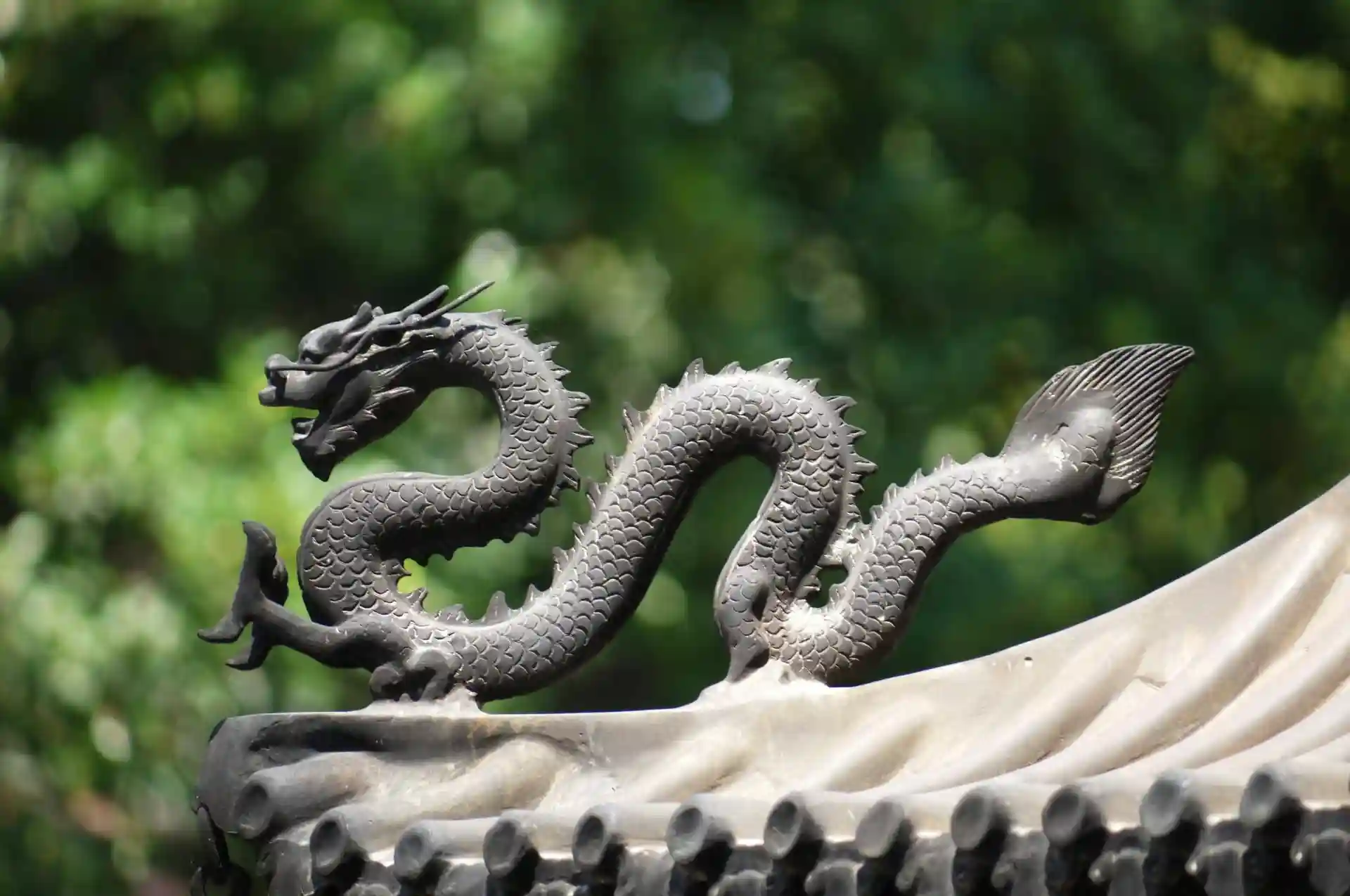In recent years, Haiti has been considering officially designating a national animal. One contender that has garnered interest is the Hispaniolan dragon, a species that may not be widely known beyond the island of Hispaniola but holds significant ecological, cultural, and symbolic value. Choosing the Hispaniolan dragon—a unique, resilient creature endemic to the island that Haiti shares with the Dominican Republic—as a national symbol could reflect the country’s values, its commitment to preserving its natural heritage, and its complex cultural history.
This article delves into why the Hispaniolan dragon might be a fitting national animal for Haiti, exploring its ecological importance, symbolic potential, and the role it plays in shaping Haiti’s natural landscape and cultural identity
Reasons Why did Haiti pick the hispanoling dragon as its national animal?
1. Who or What is the Hispaniolan Dragon?
Before diving into the reasons for its symbolic significance, it’s essential to understand what the Hispaniolan dragon is. Known scientifically as Leiocephalus personatus, this lizard, also called the Hispaniolan curly tail, is one of the unique reptile species native to Hispaniola. Though it’s not an actual dragon, the Hispaniolan dragon gets its name from its dragon-like appearance, with scales, a sturdy body, and a distinctive tail that curls up—a notable characteristic of the species.
Found across the island, the Hispaniolan dragon has adapted to various environments, from dry forests to rocky coastal areas. This adaptability and resilience in the face of environmental changes make it a powerful symbol for Haiti, a country known for its resilience and determination in the face of numerous challenges.
Also read Why can’t my chromebook bluetooth find my blue g33

2. Ecological Importance and the Role of the Hispaniolan Dragon in Haiti’s Ecosystem
The Hispaniolan dragon plays a vital role in maintaining the ecological balance of Haiti’s unique environment. As an insectivore, it helps control insect populations, which in turn benefits crops, plants, and other wildlife. Its role as a prey animal for larger predators also supports the food chain, contributing to a balanced ecosystem. Haiti’s ecosystems are already under strain from deforestation, pollution, and other human impacts, making species like the Hispaniolan dragon essential for the survival of other wildlife on the island.
Designating the Hispaniolan dragon as a national animal could serve as a reminder of the country’s need to preserve its natural resources and biodiversity. Haiti has experienced severe environmental degradation due to deforestation and soil erosion. Choosing an animal that represents the island’s unique fauna could emphasize the importance of conservation and the need to protect native species and their habitats from further harm.
3. A Symbol of Resilience
Haiti’s history is marked by resilience, from its foundation as the first Black republic to its enduring spirit despite natural disasters and economic challenges. The Hispaniolan dragon, with its remarkable ability to adapt to different habitats and survive environmental shifts, mirrors this resilience. Its tough skin, distinct curled tail, and adaptable nature represent strength, self-sufficiency, and the ability to persevere through adversity—qualities deeply ingrained in Haitian identity.
As an endemic species, the Hispaniolan dragon also represents the island’s uniqueness and independence, traits that resonate with Haiti’s struggle for freedom and sovereignty. Choosing a species that embodies resilience and adaptability would make a powerful statement about the country’s history, its current realities, and its hope for the future.
4. Cultural Significance: Mythology and National Identity
Historically, dragons have featured prominently in myths and folklore around the world as symbols of power, mystery, and strength. Although dragons are not a significant part of Haitian folklore, the image of a “dragon” carries a certain mystique and allure. This symbolic power could be reinterpreted in the context of Haiti, using the Hispaniolan dragon as an emblem of strength and unity.
In Haiti, national identity is intertwined with a sense of pride in the country’s heritage and the tenacity of its people. Adopting the Hispaniolan dragon as a national symbol would celebrate the island’s biodiversity and reinforce national pride. It would signal to the world that Haiti values its natural heritage and is committed to preserving the uniqueness of its land and species.
5. Raising Environmental Awareness and Tourism Potential
Designating the Hispaniolan dragon as a national animal could also boost efforts to raise awareness about environmental conservation in Haiti. With the loss of forested areas and limited resources for wildlife conservation, highlighting an endemic species would encourage efforts to protect the natural habitats that support the country’s biodiversity. Additionally, this choice could have a positive impact on ecotourism, attracting visitors interested in the rich natural history of Hispaniola. Ecotourism could help support local communities and provide funding for conservation projects, both of which are essential for Haiti’s sustainable development.
The promotion of a unique species as a national symbol would remind citizens and visitors alike of the critical importance of environmental preservation. The Hispaniolan dragon could become an emblem of Haiti’s commitment to protecting its wildlife and a rallying point for environmental activism and education within the country.
6. Promoting Unity with the Dominican Republic
Haiti and the Dominican Republic share the island of Hispaniola, yet their relationship has historically been complicated. Despite differences, both countries share a commitment to preserving the natural beauty and ecological diversity of their shared land. The Hispaniolan dragon, an animal found throughout the island, could serve as a unifying symbol that represents both sides of Hispaniola.
By choosing a species endemic to the island as a national symbol, Haiti could emphasize the importance of collaboration with the Dominican Republic in preserving its shared environmental heritage. Joint conservation efforts could benefit both nations, fostering mutual respect and cooperation while addressing common environmental challenges.
7. Inspiration for Future Generations
In a nation where young people represent a significant portion of the population, national symbols are important for inspiring future generations. Selecting an animal like the Hispaniolan dragon, which represents resilience, adaptation, and ecological importance, could instill a sense of pride and responsibility in Haiti’s youth. As children grow up learning about the Hispaniolan dragon as their national animal, they may be inspired to take an active role in environmental conservation and advocacy.
Moreover, education about the importance of native species and environmental protection could inspire young Haitians to pursue careers in biology, ecology, and conservation. This could ultimately strengthen the country’s capacity to address environmental challenges and foster a culture of sustainability.
Conclusion: A National Symbol with Deep Meaning
Choosing the Hispaniolan dragon as Haiti’s national animal would be a bold and meaningful decision, one that highlights the country’s resilience, commitment to environmental protection, and pride in its unique heritage. As an animal that embodies strength, adaptability, and ecological importance, the Hispaniolan dragon could become a powerful emblem for Haiti, reminding its people and the world of the island’s unique identity and the importance of preserving its natural wonders.
By embracing this native species, Haiti would be taking a step toward celebrating its natural heritage and encouraging conservation efforts that protect not only the Hispaniolan dragon but also the countless other species that make the island’s ecosystems so special. Whether through educational initiatives, ecotourism, or joint conservation efforts with the Dominican Republic, this symbolic choice has the potential to inspire a positive shift in the country’s approach to environmental stewardship and national pride.

